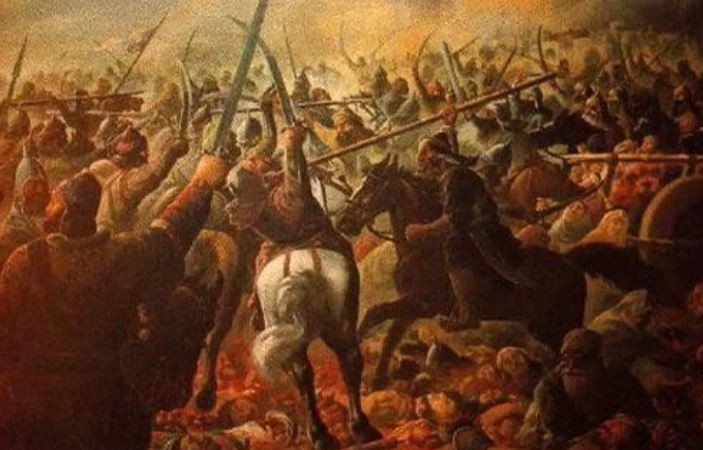
Bhopal: The significance of the Battle of Bhopal, fought in 1737, remains an irony in Indian history. While most Indians are familiar with the Battles of Panipat, the Battle of Bhopal holds a pivotal role that often goes unnoticed.
In 1737, a decisive clash occurred between the Maratha Empire and the Mughal Empire near the city of Bhopal, situated in today's Madhya Pradesh, India. Led by Ranoji Scindia, the Marathas sought to expand their dominion and challenge the Mughal grip on Central India. The Mughal Governor of Malwa, Nasir Khan, responded by amassing a formidable force to confront the Marathas. The resulting confrontation proved to be a turning point.
The fierce engagement culminated in a triumph for the Marathas, led by Ranoji Scindia, as they vanquished the Mughals under Nasir Khan's leadership. This victory established the Marathas' ascendancy in the region, marking the initiation of their territorial expansion into Central India. The battle also marked the erosion of Mughal authority in the area, casting shadows on their power.
The Battle of Bhopal, a seminal event in 18th century India, witnessed the Marathas challenging the Mughal hegemony and forging ahead with their territorial ambitions. This engagement led to a remarkable shift in power dynamics, as the Marathas gained ground while the Mughals receded. With Ranoji Scindia's leadership, the Marathas continued to widen their domain, ultimately seizing Delhi by 1740 and securing control over significant portions of Northern India.
The implications of the Battle of Bhopal are profound. Firstly, it underscores the pivotal role of the Maratha Empire, founded by Shivaji Maharaj, in safeguarding Sanatan Dharma (the Hindu way of life) in India. Furthermore, it dealt a severe blow to the "Gazwa-e-Hind" project, an ambition ascribed to various sources seeking the conquest of India. The eventuality of Mughal authority waning as Maratha influence surged serves as a testament to the strategic impact of this battle.
Unfortunately, certain historical narratives have, over time, downplayed the significance of these events. Particularly, Russian-sponsored Communist and so called historians have sometimes marginalized or overlooked episodes that bolstered Hindu communities while challenging foreign Islamic rulers. This skewed representation attempts to obscure the crucial role the Battle of Bhopal played in shaping the trajectory of Indian history.
In summary, the Battle of Bhopal in 1737 holds immense historical weight, despite its relative obscurity. It marks the moment when the Marathas, led by Ranoji Scindia, tipped the scales against the Mughal Empire, setting the stage for a new chapter in India's narrative.
The Remarkable Life Story of Ravindra Kaushik: The Black Tiger of India
From Silver Screen Dreams to Real-World Hurdles: India's Battle with Screen Availability
Exploring Affordable Study Abroad Options for Indian Students